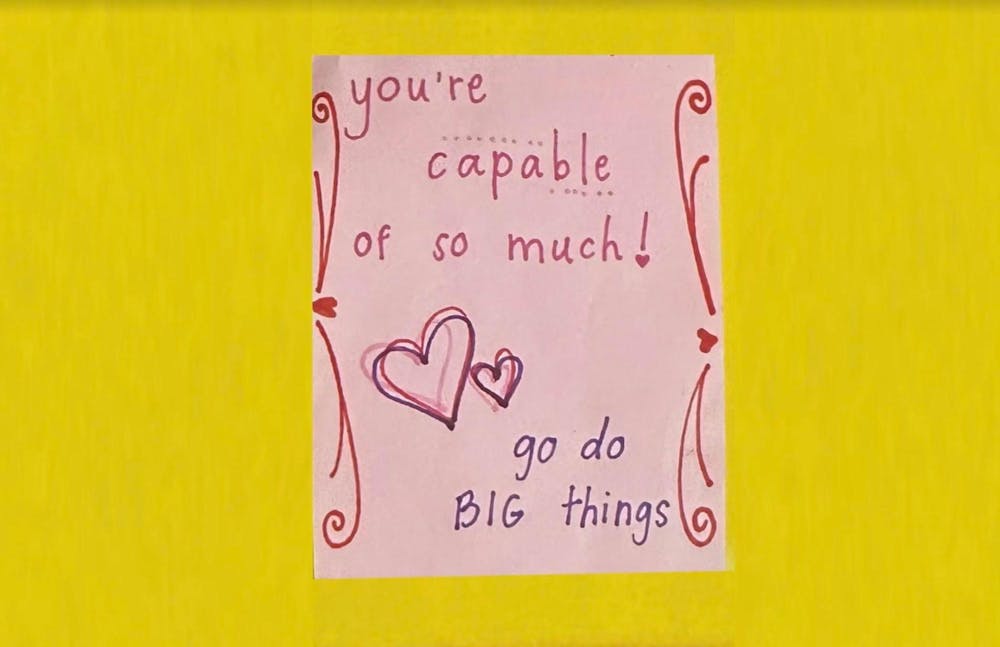PHOENIX--As National Suicide Prevention Month comes to an end, communities across Arizona are uniting to raise awareness about mental health and suicide prevention, with a focus on the youth population.
Teen Lifeline is a confidential hotline offering support and crisis help for teens. Morgan Hines, the Community Liaison for Teen Lifeline, said that their approach is rooted in the belief that young people are often more comfortable opening up to their peers than to adults.
“We provide lots of services, but the one that we're most well known for is our ‘Peer to Peer Crisis Hotline,” Hines said. “It's only for teenagers, so that means we train teens from here in Maricopa County to take calls from other teens who are in crisis.”
Teen Lifeline also offers postvention services, providing support to schools and communities after a suicide has occurred. This work includes crisis counseling, debriefing sessions, and long-term assistance with mental health programs.
“We know that one of the best ways to prevent suicide is by educating people about it so that they can be able to identify when someone in their life is struggling and what resources are available for them to get help,” Hines said.
In addition to the hotline, Teen Lifeline works closely with the Arizona Suicide Prevention Coalition (ASPC), which focuses on suicide prevention efforts across various populations, including youth, veterans and the elderly.
“The ASPC ensures that we’re reaching different communities with tailored messages and resources,” Hines said.
Sadie Dewhirst, 19, opened up about the experience of losing a close friend to suicide. She spoke about how this loss shaped her perspective on mental health and the importance of suicide prevention.
“I think that suicide month draws more awareness to the cause, but that awareness should continue on throughout the year,” Dewhirst said. “Suicide has taken a lot of lives and there are so many ways to get involved and offer support to the cause.”
According to Jennifer Nguyen, a Senior Maternal and Child Health Educator at the Maricopa County Department of Public Health, the focus on youth mental health is critical in addressing broader public health concerns.
While her work focuses more on maternal and child health, Nguyen said that her department is seeing mental health come up more frequently in their programs. Programs like Youth Mental Health First Aid Training and the Youth Advisory Councils are helping to raise awareness and educate people about the resources available.
“If you are helping someone dealing with suicidal thoughts, or dealing with the loss of someone who died by suicide, it is crucial to direct them to appropriate professional assistance and inquire about whom they trust to discuss their feelings,” Nguyen said.
Nguyen highlights that while there isn’t enough data yet to show a significant decrease in suicide rates as a result of these programs, the increased focus on education and outreach is laying a foundation for future progress.
Both Nguyen and Hines stress the importance of community involvement in expanding the reach of suicide prevention efforts. Hines noted that the Arizona Suicide Prevention Coalition is always looking for new partners—whether they be individuals, businesses, or community groups—who want to contribute to the cause.
“You never know what someone is going through, so it is important to listen or reach out and try to help,” Dewhirst said.
A key resource for suicide prevention is the Arizona Suicide Prevention Coalition (azspc.org), offering tools and support. Other resources include Youth Mental Health First Aid Training for K-12 educators, hotlines like Teen Lifeline, the 9-8-8 Suicide & Crisis Lifeline, and 2-1-1 Arizona, along with a network of community partners in Maricopa County.

